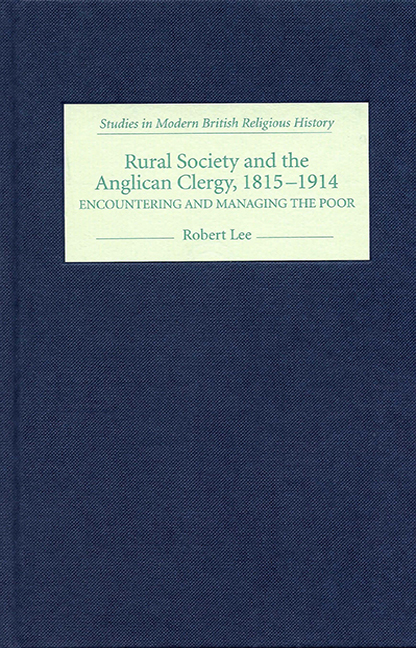Book contents
- Frontmatter
- Contenst
- List of illustrations
- Preface
- List of abbreviations
- Introduction
- Part I Encountering the Poor
- 1 Tithes and ‘Swing’: Encountering unrest
- 2 Restoration: Encounters with popular culture
- 3 Ranters and radicals: Encountering social, religious and political dissent
- Part II Managing the Poor
- Conclusion
- Bibliography
- Index
1 - Tithes and ‘Swing’: Encountering unrest
from Part I - Encountering the Poor
Published online by Cambridge University Press: 11 May 2017
- Frontmatter
- Contenst
- List of illustrations
- Preface
- List of abbreviations
- Introduction
- Part I Encountering the Poor
- 1 Tithes and ‘Swing’: Encountering unrest
- 2 Restoration: Encounters with popular culture
- 3 Ranters and radicals: Encountering social, religious and political dissent
- Part II Managing the Poor
- Conclusion
- Bibliography
- Index
Summary
Introduction
About seven I went and saw a mob at the kitchen door; it was dark; the little square yard was brim full; I asked what they wanted; they replied … I must reduce my tithe.
Giving evidence at the Norwich Summer Assizes in July 1831, the Rev. Richard Adams of Edingthorpe described an experience that he had shared in common with at least thirty other clergymen at the turn of that troubled year: a confrontation with a mob of angry agricultural labourers who were demanding that the rector reduce his tithe claim so that tenant farmers could afford to pay higher wages. Across the county in the late autumn of 1830, at the height of the ‘Captain Swing’ risings, tithe-owning clergymen found themselves besieged in their rectories and vestries, waylaid and surrounded as they moved around their parishes, and confronted and jostled at tithe audit meetings. Peace was, in several cases, only restored when a promise of some kind of tithe abatement had been extracted. In many other parishes incumbents, responding either to the genuinely perceived hardship of their flock or to the whiff of revolution in the air, made hurried, voluntary reductions to their tithe-claims and in so doing contributed to a general air of appeasement that greatly antagonised national government.
Was, then, tithe unrest simply a manifestation of economic hardship? Certainly, long before and long after the brief, dramatic weeks of ‘Swing’, there was a political dimension to tithe. Radicals and Nonconformists could not tolerate the way in which payments were exacted on a compulsory basis to finance a state church. On the other hand, to the system's apologists, tithes stood four-square in the realm of private property, as inalienable as the estates of the landed gentry. In the words of the Rev. George Burges of Halvergate, ‘the first hand that is lifted up against the payment of tithes must, in fact … be lifted up against the payment of rent’.
Only 53 of Norfolk's 732 tithe districts were tithe-free in 1836, and high-profile cases of riot and disputation covered in the local press were, in all likelihood, only the tip of an iceberg of parishes where relations between clergy and people were under strain. Tithes straddled the boundary between matters secular and sacred.
- Type
- Chapter
- Information
- Rural Society and the Anglican Clergy, 1815–1914Encountering and Managing the Poor, pp. 11 - 29Publisher: Boydell & BrewerPrint publication year: 2006

